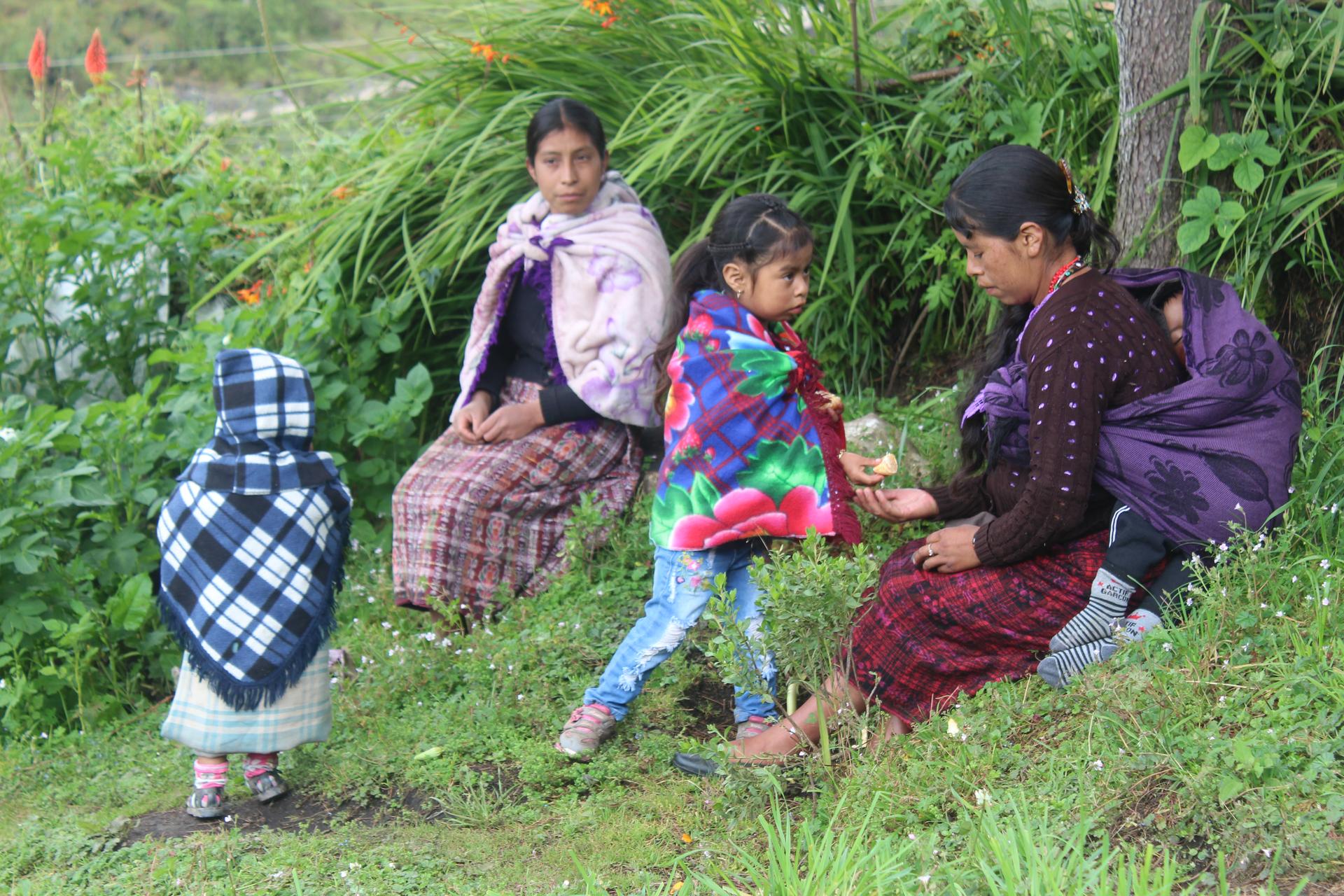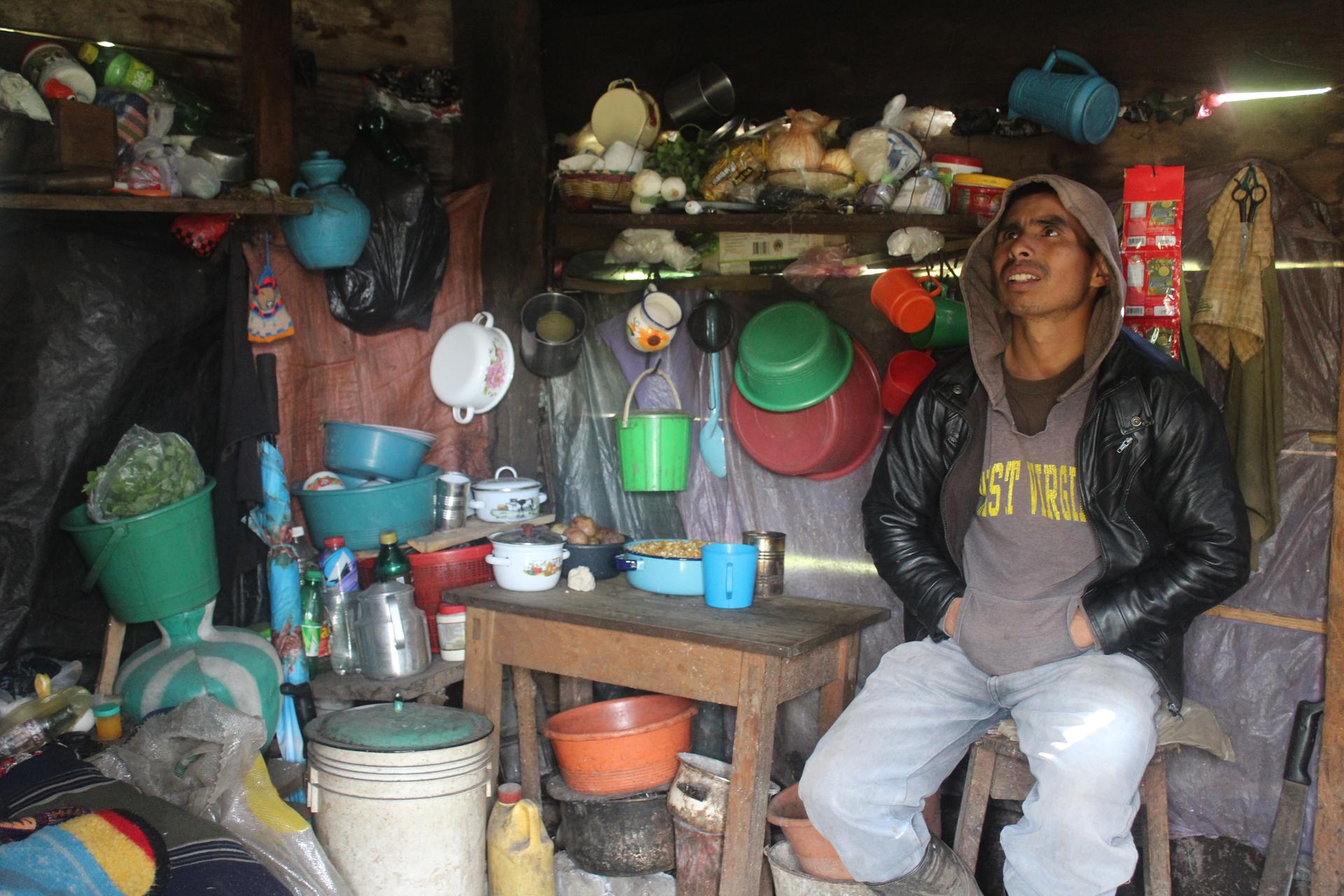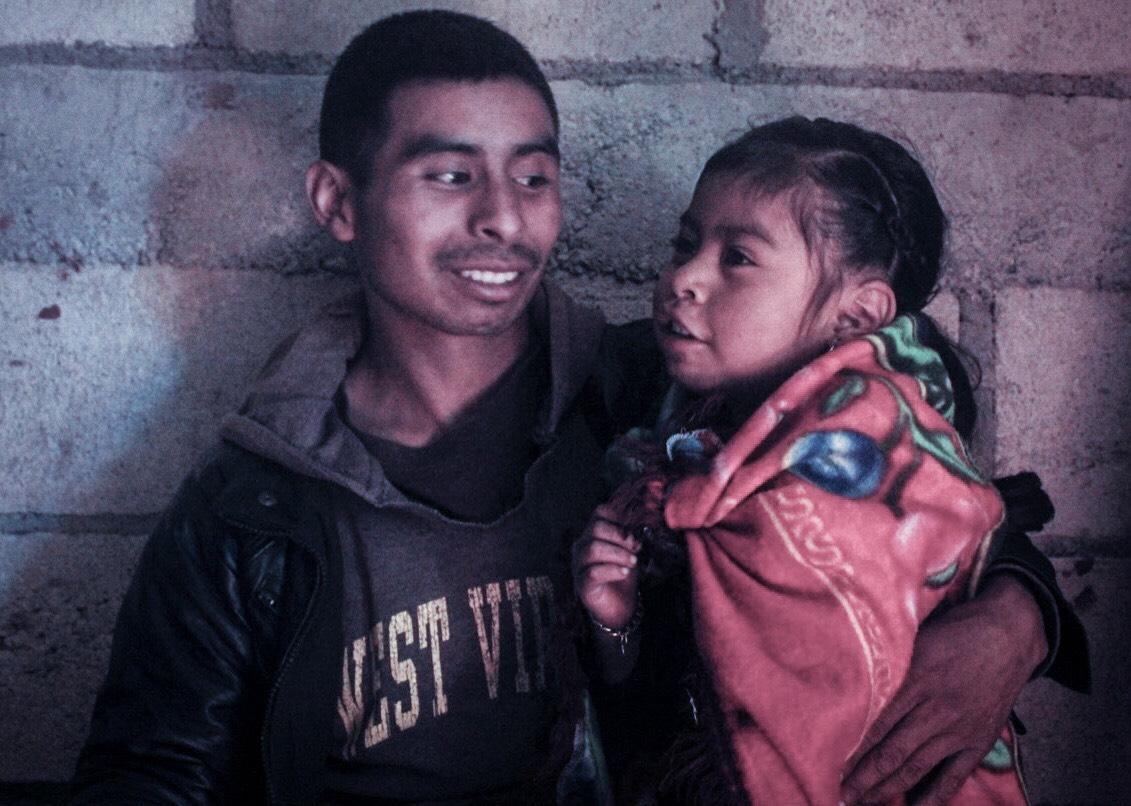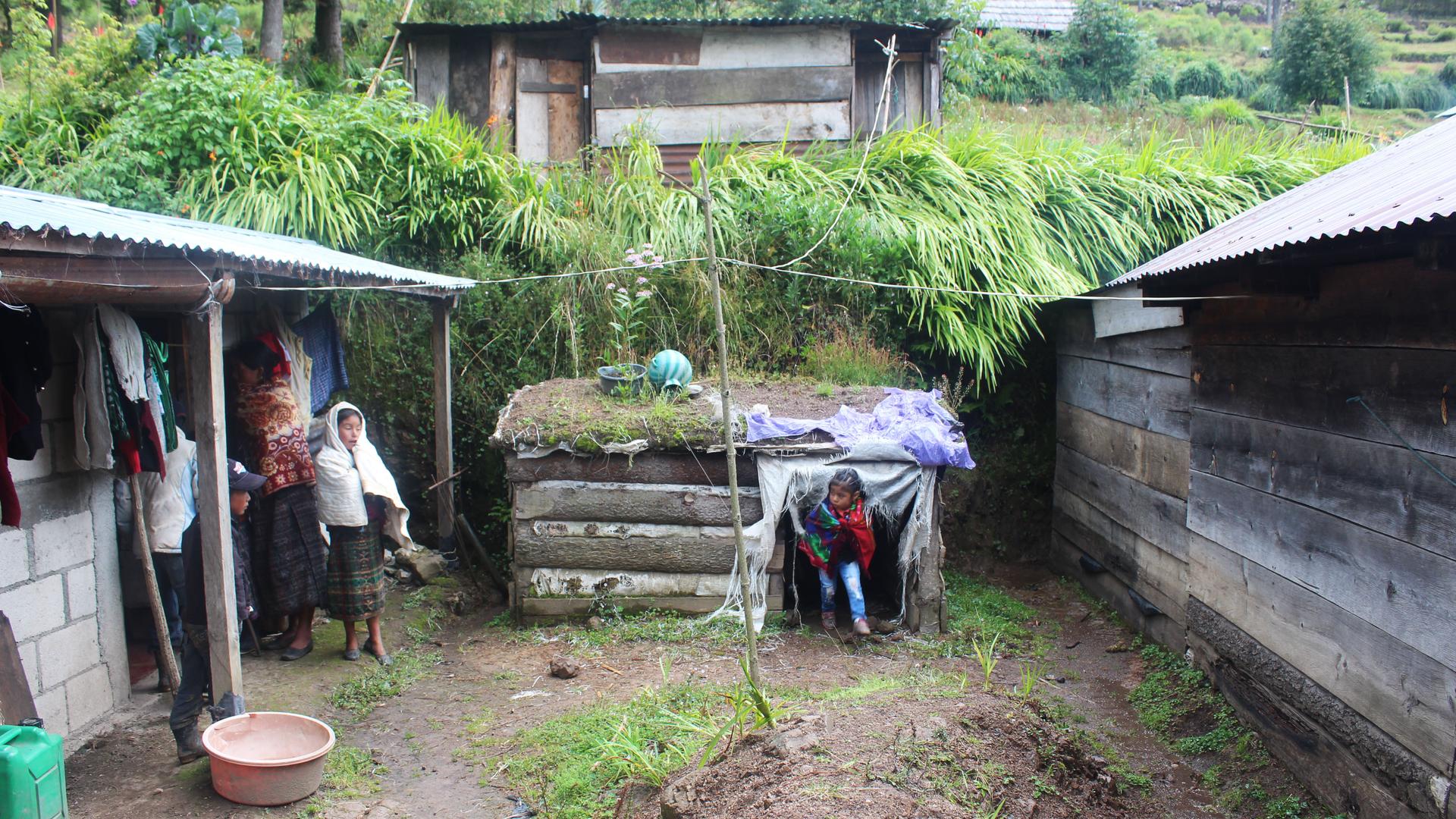One Guatemalan child’s memory of trying to come to the US: ‘They took my dad and locked him up’
Back in San Juan Ixcoy, Guatemala on Aug. 25, 2018, 5-year-old Filomena appears joyous, but her parents say she is moodier than before. She looks at home, except for the faded jean pants with stylish cutouts that she’s wearing. They were given to her in while she was in US immigration detention alone for nearly three months.
With an impish smile, 5-year-old Filomena draws up her right hand and fashions herself into a cattle driver. She designates her 3-year-old cousin the unenviable role of bull.
“The bull that’s going to the United States,” Filomena proclaims in Spanish, directing her cousin-turned-bull through the family’s one-room, floorless wooden hut.
It’s unclear whether she thinks the US is a promised land or something more sinister.
To Filomena’s family, it’s both: The country where one person can earn twice as much in one hour on minimum wage as the entire family makes in a day selling potatoes. The country where four Border Patrol officers forcibly separated Filomena from her father and then sent her to live for nearly three months in a shelter in New York City before deporting her. The country Filomena’s father would like to return to even after being wrenched from his daughter, because despite everything that happened, and even though he would like to remain in Guatemala with his family intact, he sees no hope.
Filomena, however, is too young to understand the nuance of any of this. Asked what she remembers about the US, she offers a single devastating assessment: “They took my dad and locked him up.”
While the Trump administration ended its family separation policy, it is again considering plans that could split up parents and children at the US-Mexico border, according to the Washington Post. Trump told reporters at the White House on Saturday: “I will say this: If they feel there will be separation, they don’t come.”
Statistics don’t appear to bear that out, as more Central American families keep trying to reach the United States, despite the draconian practice. In August 2018, Border Patrol apprehended nearly 47,000 people trying to enter the southwest border between checkpoints. About 34 percent were travelling as families with children, one of the highest monthly tallies of families apprehended at the border in the last five years.
Underneath its sleepy facade, San Juan Ixcoy, in the west of Guatemala, in recent years has become part of the route for trafficking cocaine, heroin and other drugs from South America to Mexico and the US, according to Claudia Samayoa, an internationally respected human rights activist in Guatemala. Local gangs have ties to the infamous Zeta Cartel in Mexico. The narcotraffickers in the region don’t tend to extort impoverished farmers, like Filomena’s family. They are simply too poor. But the narcotrafficker’s presence is everywhere, Samayoa said.
“The small potato farmer will try to be invisible. So when something goes wrong, they basically opt for silence,” Samayoa said. “It’s very much like old mafia states. It’s not the traditional sense of gangs.”

While many families from Guatemala and neighboring Honduras and El Salvador are fleeing gang persecution and fear for their lives, not all do.
For Filomena’s father, Nazario Jacinto Carrillo, the decision to leave came gradually, rooted in the family’s poverty and the region’s long history of migration. The family’s shack has one bed and no electricity. Food is scarce; they subsist on a meager diet of mostly potatoes and corn. He has no work except during the four months of potato harvest season, when the family earns US$4 a day, and occasional labor on a coffee plantation a couple of hours away.
“All of us Guatemalans are going to the United States. Going with kids. And they are succeeding,” he said. “My intentions were noble. I went there to work, to give a future to my family.”
While the number of Guatemalans who migrate to the US is a small percentage of the country’s population, the migration and family ties are long established, especially because of the country’s 36-year civil war that ended in 1996. Highland Indians like Nazario’s family were brutally targeted by the ruling military junta — which was backed by the US — because of their alleged ties to Marxist insurgents. Experts say that after the war ended, the Guatemalan government never invested in rebuilding Indigenous communities, leading to a wave of migration from the Guatemalan highland region to the US.
Nazario insists that Filomena wanted to go to the US to learn English, that he wouldn’t have brought her if she didn’t want to go, but he would have a better chance of getting in if she came along. He had been told by other people who made the trip that they would be held in detention for a few days, and then released.
There was truth to this rumor. The Obama administration deported more people than any other president, but he drew a line when it came to children, instead practicing what was derisively called “catch and release,” a policy of using detention alternatives, such as ankle monitors and check-ins with immigration agents, for children and asylum-seekers pending immigration hearings that could take years to occur. It was that policy that infuriated President Donald Trump and Attorney General Jeff Sessions, and drove them to enact the “zero-tolerance” policy of criminally prosecuting all adults who cross the border for illegal entry and separating them from their kids. It started a few weeks before Nazario and Filomena left for the US.
Nazario paid a “coyote” a down payment of $2,600, borrowed from a local bank, to take him and Filomena to the US. Their trip took seven days, travelling nonstop by bus and taxi. They made it past Mexican migration authorities. But US Border Patrol apprehended them as they crossed the border into California. Six agents surrounded them, he said. Filomena and another girl whose father had been detained latched on to Nazario. He said two agents grabbed him by his neck and pulled him away. The wailing girls were taken away by two agents apiece.
Also: With smuggling costs skyrocketing, parents balance risk and debt for their children’s future
He was sent to a privately-owned detention center in San Diego, and Filomena to a shelter in New York. Nazario can’t read or write, and he said he used him thumbprint to sign his deportation papers. He said he signed because he was promised that Filomena would be returned to him in a week’s time. It took almost three months, during which time he and his wife couldn’t speak to Filomena because they were told by a social worker she was too choked with tears to talk. Back in Guatemala, Nazario also cried nonstop and said he lost his mind with grief and powerlessness.
“If I had known they were going to take my daughter away, I wouldn’t have tried to leave the house.”
On August 7, immigration authorities flew Filomena by commercial jet to Guatemala City, a sprawling metropolis located in the south-central part of the country. Nazario, his wife Marcela, and Nazario’s mother travelled eight hours by bus to meet her. It was their first trip to the capital.
For this reporter to get to their house in San Juan Ixcoy from Mexico also requires a perilous eight-hour drive through winding roads with tight curves and unforgiving mountain ledges. No sign announces the village; instead a small bodega at the top of a hill serves as a landmark indicating an unmarked gravel road to veer left on. That road yields vistas of rolling, green hills and eventually leads to a school. Home is a 10-minute walk from the school up a muddy narrow path. Nazario grew up here (but was too poor to go to school); his four brothers have also stayed and live on the property with their families.

Now that he’s back, Nazario says his biggest worry is the money he owes the bank from his failed trip.
He said he still owes the coyote who took him and Filomena $2,000. He owes the bank $2,600. He planned to pay off both once he got a job in the US.
He has been paying the coyote $4 a month since his deportation — interest on a debt he has no idea how he’ll pay. The bank loan officer also came to his house looking for him, when news emerged that he was among the fathers who were separated from their children and deported.
“If I don’t pay, they will take me to jail,” he said, despairing at the idea that he would once again be separated from his daughter. In fact, it’s against the law in Guatemala to haul debtors to jail. But the alternative is hardly better. The most likely outcome, Guatemalan human rights activists said, is that the bank will simply take the family’s land.
“When the parents are deported, they not only return to the same conditions that drove them to leave, but the conditions in many cases are even worse because now they have debt they didn’t have before,” said Estuardo Sanchez, a protection officer with UNICEF in Guatemala.
Despite everything that happened, Nazario still wants to go back to the US to work and send money home. But he said he won’t risk the trip again, at least not with Filomena. He’s scared of going back to prison and once again being taken from his daughter.

Back at home, with her family, Filomena appears joyous, doting adoringly on her dad and playing nonstop with a rotating cast of cousins. She looks at home, except for the faded jean pants with stylish cutouts that she’s wearing. They were given to her in detention, setting her conspicuously apart from her cousins in their ankle-length, traditional woven Mayan skirts. She laughs joyously as she plays hopscotch.
Uno, dos, tres, cuatro, she counts, before announcing her foot can’t take anymore.
Was she scared in the United States? “I’m not scared,” she declared.
But her parents say she is moodier than before. She doesn’t like when her dad leaves. If he goes to work in the fields, she accompanies him. If he leaves the property to look for firewood, she demands to tag along. If he leaves for too long, he said, she begins to cry.
“Imagine, if you leave your child alone for two or three days, they feel sad,” Nazario said. “Even more so for three months.”
And, like most parents separated from their children, Nazario and Marcela have received no information from Guatemalan or US officials about what kind of experiences Filomena had in US custody. They don’t know even know what shelter in New York City she was held in. For her part, Filomena has shared almost nothing except that she painted a lot.
They couldn’t stay in the US but their experience there has stayed with them.
The original version of this story appeared in The Daily Beast and appears here with permission from The Daily Beast Company LLC. ©2018 The Daily Beast Company LLC.
Next: The government says it will help reunite families they separated at the border — but not all of them
